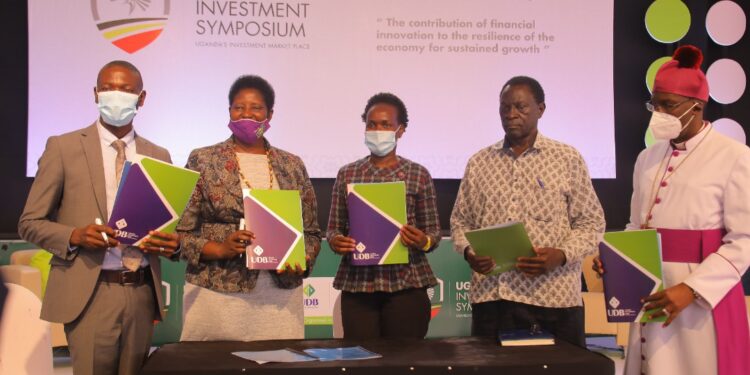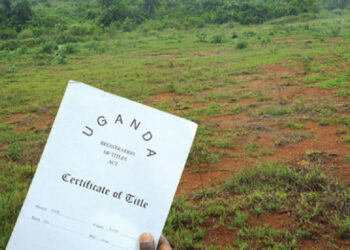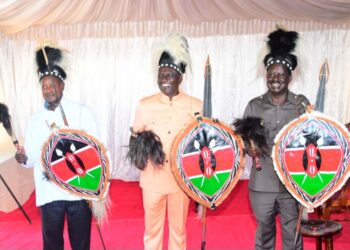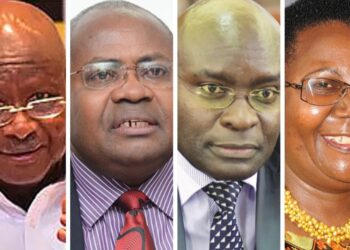Katumba James of “Katali Kankiiza Limited”, a yoghurt producing company located in Kakoba Mbarara, intimated to us that he is deeply worried on where to obtain funds to expand and sustain his business operations. He also implored government for funding.
Many innovators such as Katumba have decried the bureaucracy and long procedural processes one goes through to obtain funds from financial institutions.
Access to funds or the cost of loans in Uganda is one of the major roadblocks in the undertakings of many entrepreneurs. The government of Uganda is however seeking to intervene by ensuring every group of people can easily access finance to be able to carry out an income generating activity at their level.
Uganda Development Bank and Operation Wealth Creation have been taking Investment Symposiums across the country, where they are attempting to bridge the knowledge and information gaps about financing amongst local entrepreneurs.
At the Greater Ankole Investment symposium organized at Kakyeka stadium in Mbarara city, Uganda Development Bank told participants in attendance about accessing funding from the recently government capitalized bank.
Both, bank’s Chief Executive Officer Patricia Ojangole and Director credit Samuel Edem-Maitua took local entrepreneurs step by step through how one needs to prepare themselves before a loan facility is accessed.
UDB, which co-sponsored the event, had its relevant staff on site to take through the prospects for the money which different companies can use to improve or expand their businesses.
This raised a ray of hope to various visionary innovators in the region, whose activities are inhibited by lack of access to funds.
UDB’s Maitua said, “if you have a collateral challenge, but a viable project that requires our finance solutions, you can easily access our funds.”
“So we finance groups of 50 to 400 members and anticipate certain value chains in crops like coffee, tea coming up, we are happy to look at farmer group models and how they feed into larger agro-processing and eventual marketing or export promotion. So funds from this can be used for inputs, storage, or even crop finance, among the other needs.”
UDB shares:
Buying shares from UDB, by qualified entities and individuals is another technique Maitua emphasized for one to be able to obtain funds easily from the Bank.
“On the other hand, I had mentioned there is an equity option. We are the bank, we can take shareholding to a certain extent, in an entity that qualifies, and then after we have helped you to bring up enterprise value, or the value of your organisation, we diversify, and how do we do that, we sell our shares, either on the local exchange, or other regional arrangements,” he added.
Other requirements
1. Facility Application letter (on official company letterhead) and board resolution to borrow.
2. A copy of detailed business plan and or a feasibility study with cash flow projections and projected financial settlements.
3. A copy of each of the last 3 years audited / drafted accounts from an ICPAU/BOU listed audited firm) for existing business
4. Full details of security proposed for the facility sought (where applicable)
5. Bank and Loan statement for the last 12 months (facility agreements for any existing facilities, with status)
6. Copy of National Environmental Management Authority (NEMA) certificate of Application and an environmental impact assessment report) where applicable.
7. Credit reference bureau report of the company and all its shareholders/ directors (where applicable) and / or CRB numbers.
8. Proof of NSSF compliance for companies employing more than 15 people.
9. Copy of investment license (where applicable).
10. Latest returns of Directors and shareholders.
11. Statutory licenses from relevant ministry/ GOU agency where applicable (schools, universities, mining, extraction, exporters, hospitals, power plants.
About Uganda Development Bank:
The Uganda Development Bank Limited (UDBL) is a government-owned development bank, and with a mandate to facilitate social economic development in the country, through sustainable financial interventions.
Consistent with the mandate, the bank supports projects within the private sector that demonstrate potential to deliver high social-economic value in terms of job creation, increased production output, tax contribution and foreign exchange generation, among other outcomes.
Do you have a story in your community or an opinion to share with us: Email us at editorial@watchdoguganda.com













